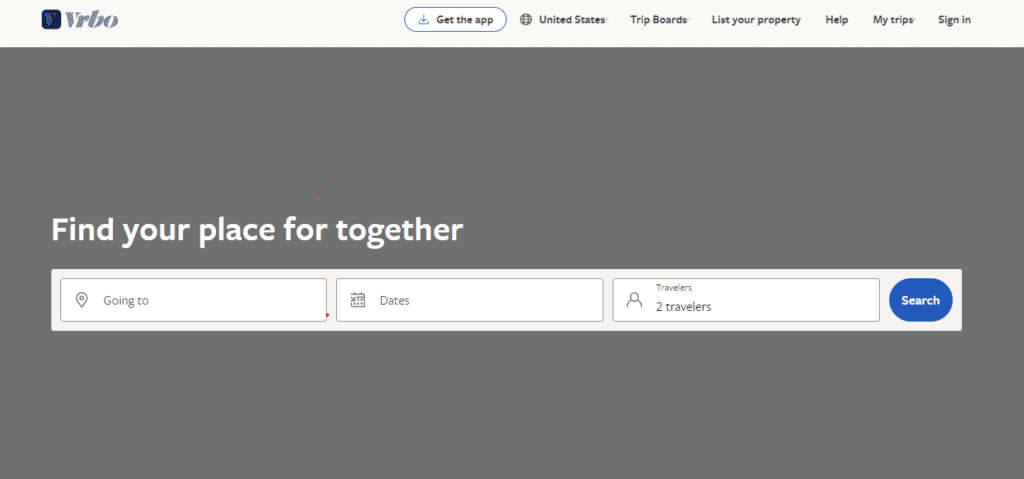Is HomeAway Legit? Vrbo Reviews (It’s legit) of 2024
When it comes to planning a vacation or finding a place to stay during travels, the legitimacy of accommodation platforms becomes a primary concern.
Is HomeAway Legit? Among the numerous options available, HomeAway stands out as a renowned platform for vacation rentals.
Let’s dive into what makes HomeAway a trusted choice and explore the facets of its legitimacy.

Is HomeAway Legit?
HomeAway is an online marketplace that connects property owners with travelers seeking vacation rentals.
Established in 2005, it quickly gained traction, providing an array of options for accommodations worldwide.
History of HomeAway
Founded by Brian Sharples and Carl Shepherd, HomeAway aimed to revolutionize the travel industry by offering an extensive database of rental properties.
Over the years, it expanded its reach through strategic acquisitions, solidifying its presence in the market.
How HomeAway Works?
HomeAway functions as a platform where property owners list their spaces, and travelers can browse and book these accommodations.
The process involves detailed listings, secure payment systems, and safety measures to ensure a smooth experience for both hosts and guests.
Legitimacy of HomeAway

The primary concern for users often revolves around the legitimacy of the platform. User reviews and experiences play a pivotal role in establishing the authenticity of HomeAway.
Positive feedback regarding bookings, customer support, and safety measures showcases its credibility.
Pros and Cons of Using HomeAway
For travelers, HomeAway offers a wide variety of accommodations, personalized experiences, and often competitive pricing.
However, limitations such as availability and fluctuating prices might affect user experiences. Here’s a breakdown of the pros and cons of using HomeAway:
Pros of Using HomeAway:
- Variety of Options: HomeAway offers a vast array of vacation rentals, from cozy apartments to luxurious villas, catering to diverse preferences and budgets.
- Local Experience: Staying in a vacation rental allows travelers to immerse themselves in local cultures and neighborhoods, providing a more authentic experience compared to standard hotels.
- Space and Amenities: Rental properties on HomeAway often provide more space and amenities like kitchens, multiple bedrooms, and private pools, ideal for families or larger groups.
- Cost Savings: Depending on the destination and type of accommodation chosen, HomeAway can be more cost-effective than traditional hotels, especially for longer stays.
- Privacy and Comfort: Vacation rentals afford a level of privacy and comfort that may not be available in hotels, allowing guests to feel more at home during their travels.
Cons of Using HomeAway:
- Availability Challenges: Popular destinations or peak seasons might result in limited availability, making it challenging to secure desired accommodations.
- Fluctuating Prices: Prices on HomeAway can fluctuate based on demand, location, and seasonal factors, potentially impacting budget plans.
- Communication and Support: While hosts are usually responsive, some travelers might face challenges in communication or support in case of issues during their stay.
- Cancellation Policies: The cancellation policies set by individual hosts can vary, leading to potential inconveniences if travel plans change unexpectedly.
- Verification and Expectations: Despite efforts to ensure accuracy, discrepancies between the listing and the actual property might occasionally arise, affecting guest expectations.
Comparing HomeAway with Similar Platforms
When assessing the legitimacy of HomeAway, it’s essential to consider its reputation and user reviews.
HomeAway is a well-established vacation rental platform that connects travelers with property owners.
The platform has gained trust over the years and is generally regarded as legitimate. Users often praise its user-friendly interface and reliable booking system.
However, like any online platform, experiences can vary. It’s advisable to thoroughly research and read reviews from other users before making any reservations.
In summary, HomeAway is generally considered a legitimate option for vacation rentals, but due diligence is recommended to ensure a positive experience.
Tips for Using HomeAway Safely
To ensure a secure and enjoyable experience, both travelers and property owners should adhere to safety guidelines provided by HomeAway.
Verifying listings, reading reviews, and communicating directly with hosts are among the recommended practices. Here are some tips to ensure a safe and secure experience while using HomeAway:
For Travelers:
- Research Thoroughly: Look into the property details, reviews, and ratings before booking. Check for any red flags or inconsistencies in the listing.
- Communicate Directly: Reach out to the host with any questions or concerns you might have regarding the property. Clear communication helps set expectations.
- Verify the Host: Ensure the legitimacy of the host by checking their profile, reviews, and response rate. A verified host with positive feedback adds credibility.
- Use Secure Payment: Utilize HomeAway’s secure payment system for transactions. Avoid making payments outside the platform to protect yourself from potential scams.
- Check for Safety Measures: Inquire about safety features within the property, such as smoke detectors, fire extinguishers, or security measures, especially if traveling with family or alone.
For Property Owners:
- Accurate Listings: Provide detailed and accurate descriptions of your property. Be transparent about amenities, rules, and any potential limitations.
- Responsive Communication: Respond promptly to inquiries and messages from potential guests. Clear and timely communication builds trust.
- Set Clear Policies: Establish clear cancellation policies, house rules, and expectations for guests. Communicate these effectively to avoid misunderstandings.
- Enhance Security Measures: Implement necessary safety measures within your property to ensure the well-being of guests during their stay.
- Stay Vigilant: Keep an eye on bookings and guest interactions. Report any suspicious activity or issues to HomeAway’s support team promptly.
Adhering to these safety tips can contribute to a secure and pleasant experience for both travelers and property owners using the HomeAway platform.
People also ask
Is HomeAway the same as Vrbo?
Yes, HomeAway and Vrbo are essentially the same. HomeAway acquired Vrbo (Vacation Rentals by Owner) in 2006.
While they maintain separate websites, they operate under the same umbrella company,
offering vacation rental listings and services to travelers worldwide.
What is the difference between Airbnb and HomeAway?
Airbnb typically features a diverse range of lodging options, including shared spaces and unique experiences,
while HomeAway specializes in whole homes and vacation rentals, often catering to larger groups or longer stays.
Is HomeAway the same as Expedia?
HomeAway is owned by Expedia Group but operates as a separate platform specializing in vacation rentals,
while Expedia focuses on offering a wide range of travel services, including flights, hotels, and car rentals, among others.
Did HomeAway become Vrbo?
Yes, HomeAway acquired Vrbo (Vacation Rentals by Owner) in 2006, and over time,
HomeAway rebranded to Vrbo, consolidating its vacation rental services under the Vrbo name.
Conclusion
In conclusion, HomeAway is generally considered a legitimate platform for vacation rentals.
While there may be occasional concerns or negative experiences reported by users, the majority of transactions on the platform occur smoothly.
As with any online marketplace, users must exercise caution, conduct thorough research, and communicate with hosts to ensure a secure and enjoyable booking experience.
Overall, HomeAway can be a reliable resource for finding vacation accommodations, provided users take the necessary precautions and remain vigilant throughout the booking process.







